The Voice of the Federation of Rental-housing Providers of Ontario 15
Crisis Communication Planning -A Nine Point Guide
by David Eisenstadt, tcgpr (The Communications Group Inc.)
For a property management company, planning for a response to a crisis need not be the crystal-ball activity it at first appears. No one can be expected to know in detail how to respond to a hypothetical crisis of unknown dimension.
Yet, you cannot reasonably ask your internal marketing people or your PR Consultant (if you have one) to blue sky and develop an off-the-shelf crisis communications plan for crimes or fires or floods that occur in your buildings. So what’ s a business leader to ao, because environmental issues, people issues and even corporate bankruptcy, are conceivable crisis issues? Together though, your executive team and your PR Consultant can develop the crisis communications methodology now, with which to apply sound PR principles, should a disaster occur. You can do it most inexpensively by blending the necessary steps into the existing activities in a PR Plan, assuming you have one. We all know that if you fail to plan, you can expect to fail. So, here are nine points to consider before developing your Crisis
Preparedness Plan:
1. Ask For A Capabilities Presentation From Your PR Firm. If you haven’t already done so, or if it has been some time since you did, ask your PR resource to outline its full range of capabilities. But buyer beware. Not every firm does Crisis work. Resources and experience you may require during a crisis may not be part of your current ‘mix’ of PR activities, but that doesn’t mean your PR firm is incapable of providing them. The point is being prepared and how quickly your PR firm will be able to get rolling in a crisis?
2. Analyze To Minimize Approval Cycles. Routing a routine news release or other written material to too many people is a waste of everyone’s time, and it can cause serious problems during a crisis. First, it will put noses out of joint to bypass some of them when issuing releases during an emergency. Second, it does precisely the opposite of what it purports to do: by asking too many people to review a draft, it becomes too tempting for each one to get careless about spotting errors. They each assume others have done, or will do that.
3. Identify Potential Crisis Situations. That’s not as difficult as it seems. A brainstorming session among corporate executives and PR counsel might suggest a host of worst-case scenarios. You know, for example, if your properties are a magnet for criminal activities because of its location. When developing your Crisis Preparedness Plan, you can measure its potential effectiveness against these grim possibilities to pinpoint and rectify soft spots.
4. Prepare Top management To Be Spokespersons. When disaster strikes, neither the news media nor their publics will tolerate a low-level corporate mouthpiece, while toplevel executives are unavailable for comment. Senior staff may need Media Training (or a refresher session) in advance, so they can handle the tough interviews even when there’s no time for rehearsals and speechwriters.
5. Notify PR Counsel Of All News Media Contacts and Speaking Engagements. It makes for better
news media relations 1f your PR counsel (and internal PR staff) have a complete list of news media individuals familiar with your organization. In a crisis, upcoming speaking engagements (which have nothing to do with the crisis) might also become ready-made opportunities to set the record straight when your audience suddenly wants to hear from you, something very different from your original prepared text.
6. Use Non-Crisis Events As Planning Exercises. Planning for a news conference heralding a new product line may proceed at a leisurely pace; but use it to identify the turnaround bottlenecks in case you have to arrange another, less festive one overnight. It’s not how quickly each step gets handled that matters, but how quickly each one could have been completed. Your analysis could suggest changes both in your own organization and in the way you relate to your PR firm. One key problem to look for is how quickly people can be reached in an emergency, and what can be done if they cannot be reached.
7. Encourage Broad-Based Contact By Your PR Counsel. Don’t leave everything up to your marketing VP, funnelling all communications through himjher. Your PR representative should have developed working relationships with a range of individuals in your company, so the introductions won’t have to come in mid-crisis. Who’s the most credible in-house authority to respond to a particular issue? Which people are best suited for news media interviews? How quickly can your PR people get direct answers to technical questions? This broad-based approach doesn’t imply a loss of personal control over approval of what your PR firm does. It simply helps shorten response times when you’re too busy to run around looking for answers to their questions.
8. Review The Fundamentals Periodically. Your PR counselor should be able to draft an up-to-theminute company profile on short notice. Biographies and pictures of key people and summaries of product lines are other examples of information that shouldn’t have to be assembled in a panic. Have the information prepared in advance. Review it at least as part of each annual PR Plan review.
9. Increase PR Emphasis On Strategic Planning. It’s easier in the short run to leave PR details to your PR consultant, to execute on a daily basis. It’s more effective in the long run, however, to use your PR counsel’s expertise to better equip your company for rapid response to crisis. Involve PR in your “where are we going?” sessions. Develop clear, consistent positions on social and economic issues. Above all, be sure your PR Counsel and your team fully-understand your corporate objectives, or your Crisis Plan will fail.
David Eisenstadt, Fellow PRSA, CPRS, is
the Founding Partner at tcgpr (The
Communications Group Inc.) a Torontobased
PR firm serving real estate industry
and other clients across Canada. Visit
www.tcgpr.com. Phone: (416) 69~9900
ext. 36; email: deisenstadt@tcgpr.com.
tcgpr is a partner of IPREX Global PR network www.iprex.ca


